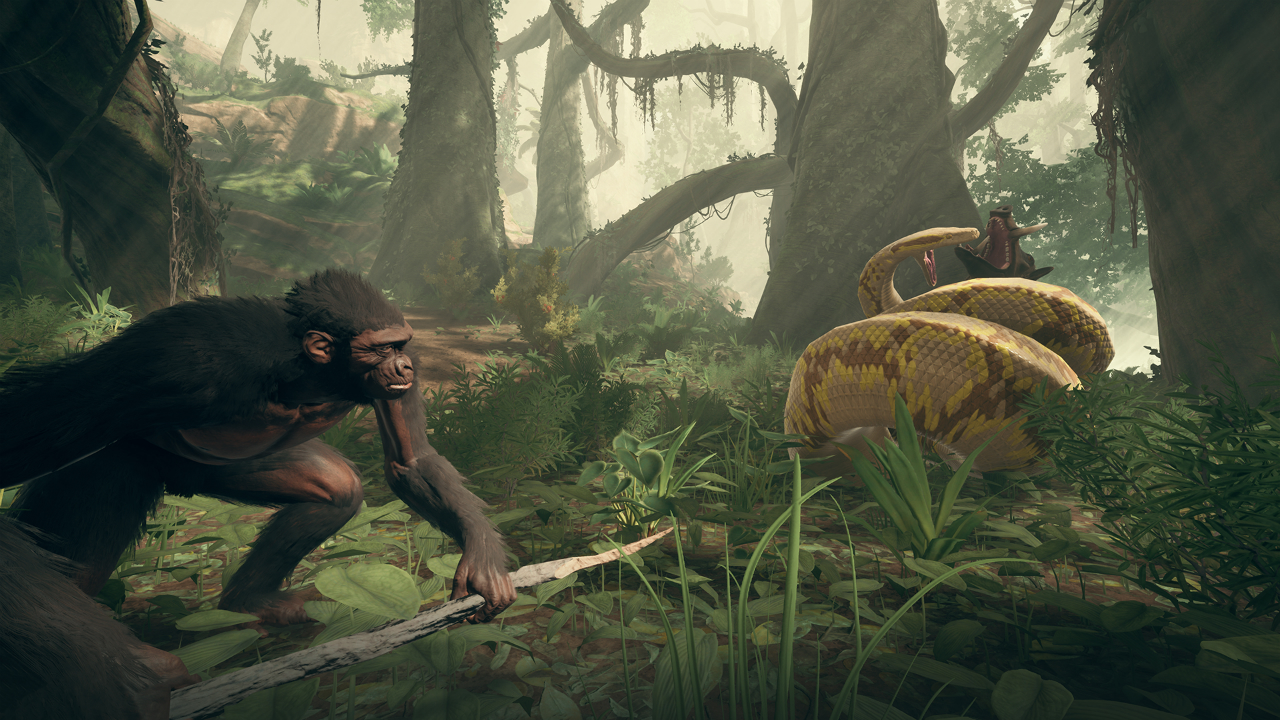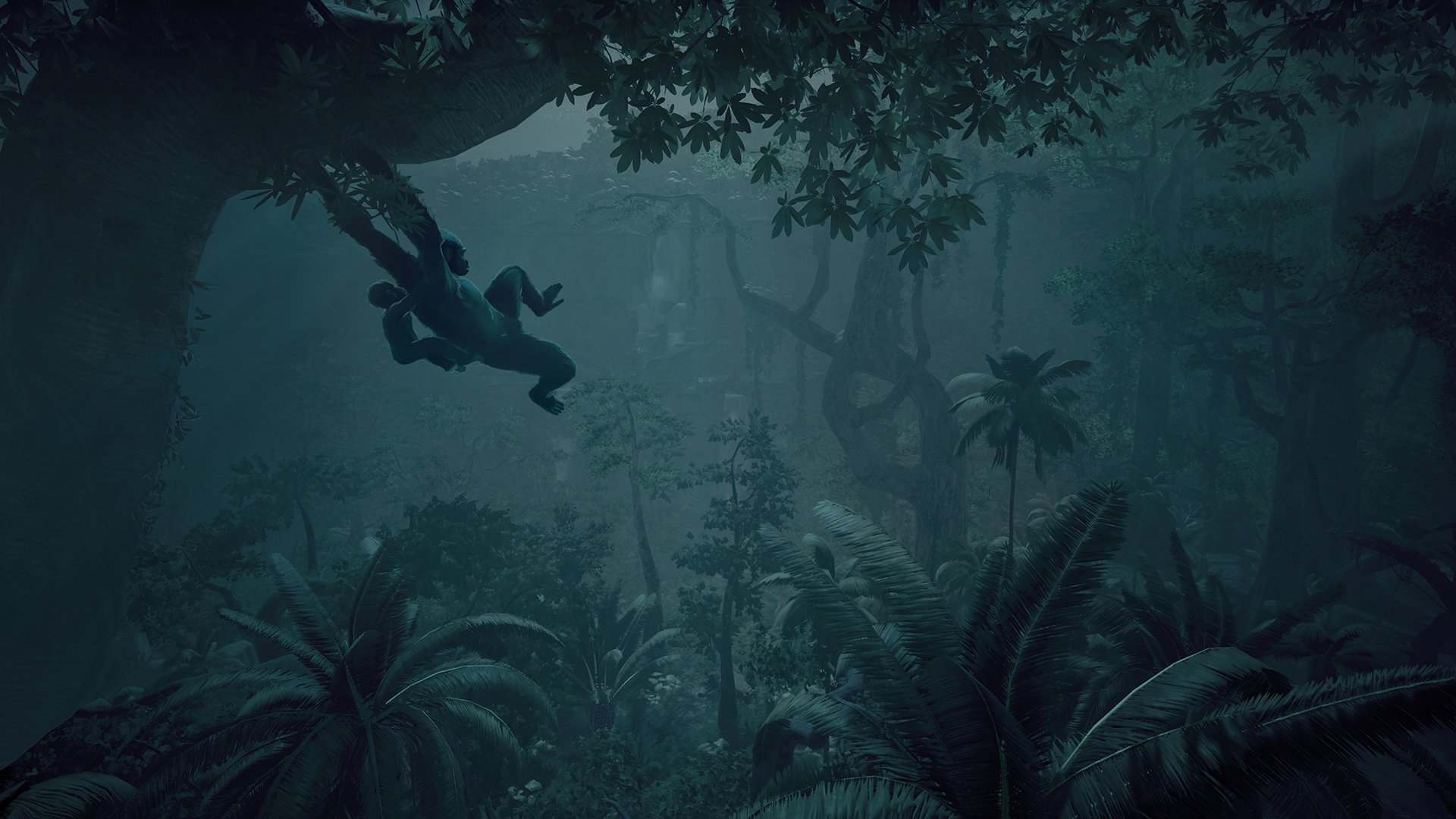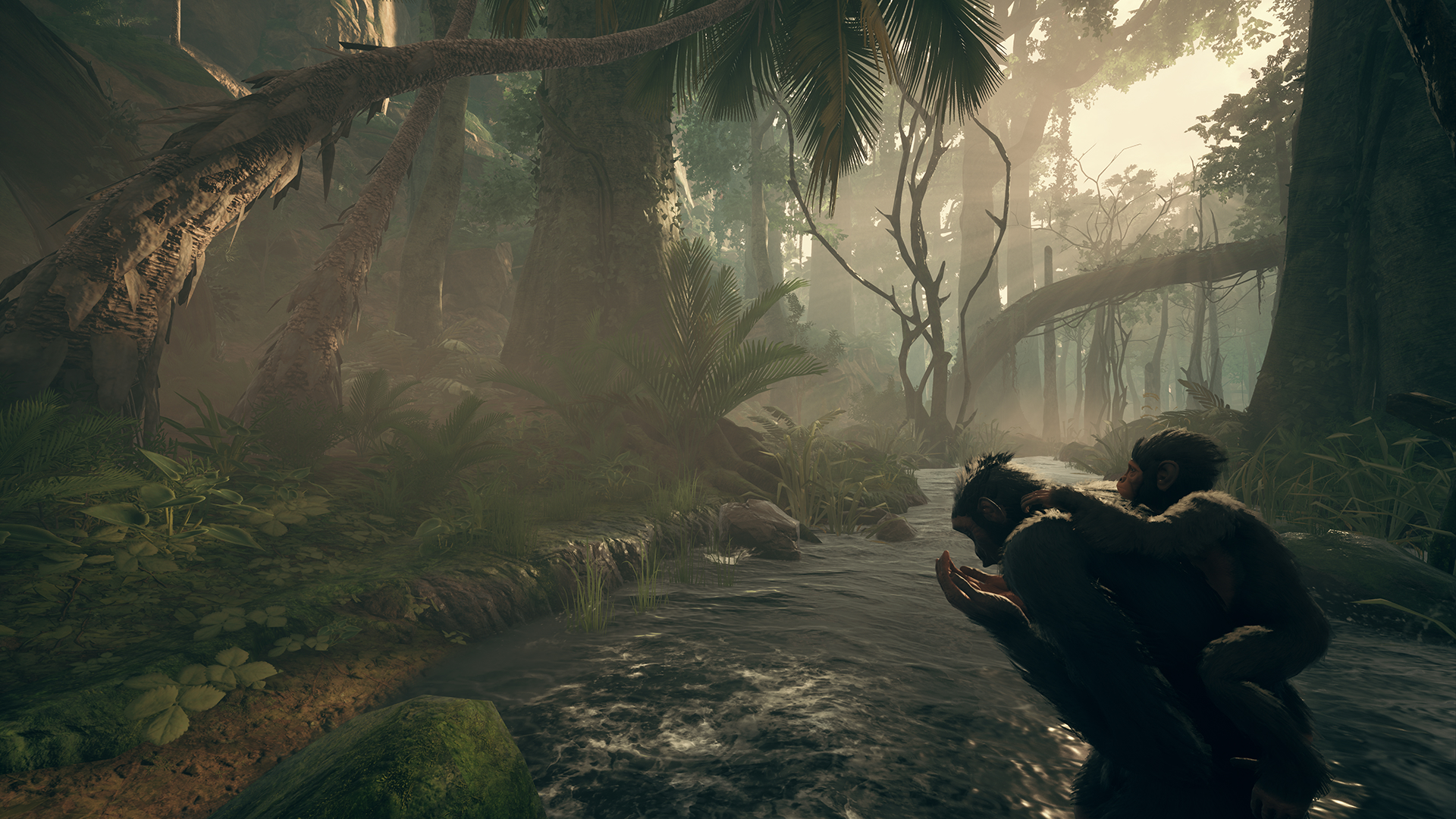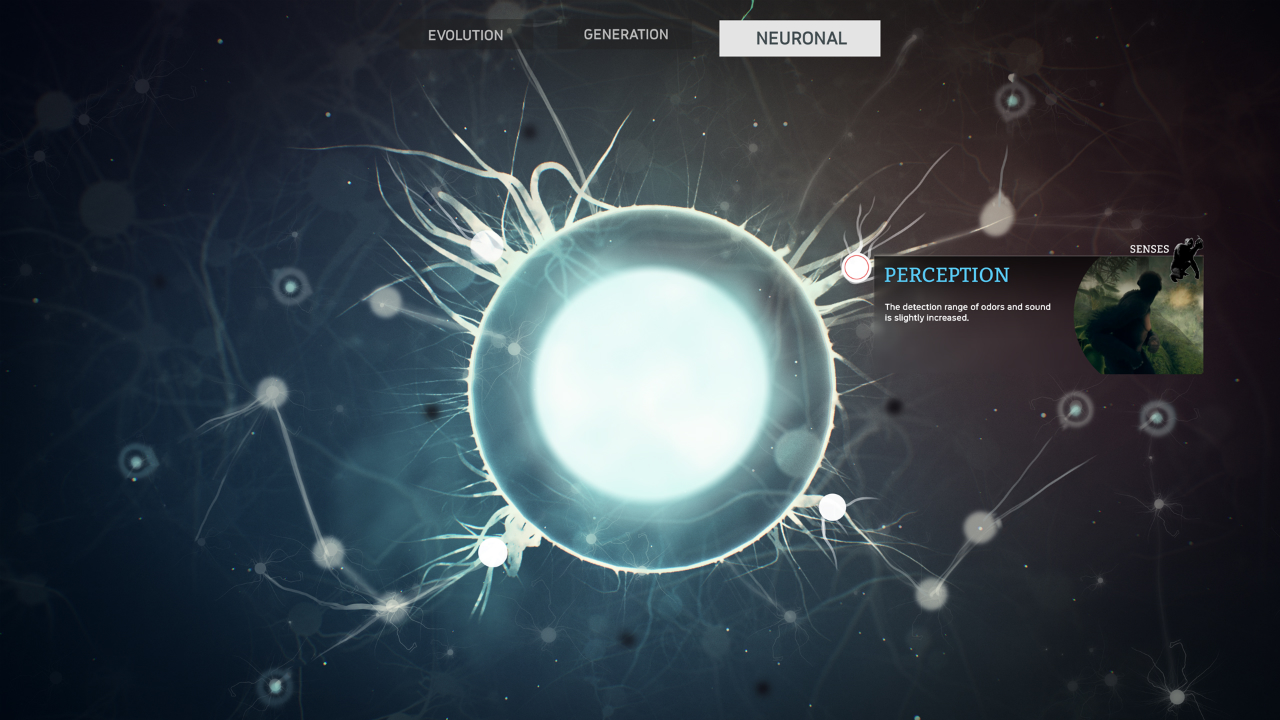Ancestors: The Humankind Odyssey is "Civilization meets Assassin's Creed" but hairier
This isn't your standard survival monkey business
It's a good thing that I wasn't one of the chimp-like hominids that would become the bedrock for modern man. The new, ambitious open-world survival experiment Ancestors: Humankind Odyssey proves that if that had been the case, we would today be living in a world where everyone had boneless, limp spaghetti limbs to try and avoid the constant splintering of femurs, and everyone would be living on a berry only diet because I took way too long to figure out you could hit a coconut with a rock.
At the start, you play as the chimp-like hominid, one of a clan that lives in a leafy green jungle that's also populated by large predators, other hominoids, and eagles with a taste for hominid hamburgers. You have to make sure you eat, drink and sleep to stay alive, but your bigger goal is to evolve, something you do by learning new skills, experimenting in your environment, and overcoming your natural fear of the unknown.

Origins story

When the character you're playing inevitably dies from a snake attack, a fall, or straight up starvation, you will immediately transfer to another clan member. There's a catch though, because you can run out of clan members. If that happens, your lineage fails and it's game over. Luckily, with the right social skills, you can make more clan babies, increasing your numbers and the strength of your family.
"It's a subject matter that I love, that I always found fascinating, that we come from there and we're very disconnected from our origins," says studio co-founder and creative director Patrice Désilets. Yes, the very same Patrice Désilets that created Assassin's Creed. He says he pitched this new project as Civilization meets Assassin's Creed.
"I'm asking players to actually use the instinct that we have, and after a while your homosapien brain turns off and you're just there," he says. "But I'm playing with the players, because I'm asking them can you go there? Because gamers too, we're used to being taken by the hand and I understand why, you have to make sure people can play your game."
He says Ancestors isn't difficult just for the sake of being difficult, it's about challenging the player to think for themselves. "We felt it was really powerful to answer the question the player would ask themselves, like can I smash this coconut with this rock. Not telling you that you can." He adds that in playtests, children had an easier time with these simple discoveries than adults.

Monkey flavored Marmite
Some people are going to hate this game. Like a raging, burning, from the very depths of their soul hate it. The world is big and bewildering even to the most experienced of gamers, the tutorial style is best described as neglectful parent, and if you're only spending 80% of your game time poisoned, disabled or starving, you're winning.
This is a survival simulation, one built like an action game, and one of the most ambitious I've ever played. Not just in its scope, but in what it expects from the player. It needs you to rely on your own curiosity and initiative to progress and outright refuses to prompt you, meaning it would be very easy to spend whole play sessions just roaming the jungle, picking up the odd stick, without ever actually achieving anything. But even that, argues Désilets, is a valid tactic. Staying in your settlement with your clan, learning communication, grooming, building some beds and learning basic construction has its value too.
Sign up to the GamesRadar+ Newsletter
Weekly digests, tales from the communities you love, and more
To actually move forward in the game your clan needs to evolve, and that happens when you grow new neurons. Anything you do, grooming a hairy pal (not a euphemism) or standing up or using your sense of smell can help you learn a new skill. Moving around the jungle will lead to increased motility, which will mean you become able to use both hands to carry objects, which means you can smash the shit out of that coconut with a big rock. Turns out the building blocks of humanity are teeny tiny. "It's a game and there are limitations," says Desilets. "I hope people don't think they'll get to build the pyramids. It's a finite world." Consider yourselves warned.

Brain power
The transformation of the usual skill tree into a crackling, glowing representation of the human brain - and the neural pathways we developer when we learn something new - is a minor stroke of genius, even if it takes a little bit of figuring out. For instance, you only make new neurological pathways when you sleep, and carrying a baby clan member around with you - on your back, not like a handbag - will help you develop skills faster, because baby brains are like little skill sponges. We only saw the very early parts of the game, but the aim is to evolve to early man. Recognizably human, but still a bit fugly.
Despite feeling a sense of bewilderment and uncertainty I haven't felt since my mum lost me in a department store when I was small, I was utterly immersed in my jungle life. Two hours flew by, without a list of objectives to grind through you just become lost in the world, following your own instincts. The warm glow of achievement comes from figuring out something for yourself, or trying something new and being blessed with a new neuron as a result.
Ancestors: The Humankind Odyssey will get a digital release on PC (via Epic), Xbox One and PS4 and will cost $39.99.

Rachel Weber is the former US Managing Editor of GamesRadar+ and lives in Brooklyn, New York. She joined GamesRadar+ in 2017, revitalizing the news coverage and building new processes and strategies for the US team.


